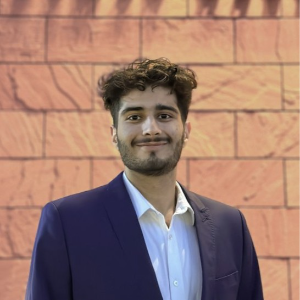Title : Leveraging intergenerational contact to reduce neuropsychiatric comorbidities in parkinson's disease via parkinson’s pals
Abstract:
Background:
Parkinson’s disease (PD) is a chronic neurodegenerative disease affecting more than 10 million people worldwide. PD is commonly associated with motor symptoms like bradykinesia and non-motor symptoms like autonomic changes. Oftentimes, these symptoms can be recognized and addressed through primary care checkups, pharmacological intervention, and physical therapy. However, PD patients also often experience neuropsychiatric comorbidities such as depression and anxiety. These comorbidities often go undiagnosed and untreated throughout a patient’s PD treatment journey, which has been shown to lower quality of life (QofL) and exacerbate PD progression. The prevalence of neuropsychiatric comorbidities in PD patients is estimated to be as high as 92%. Among these comorbidities, depression is responsible for 34.5% of cases, while anxiety accounts for 24% of cases. Thus, to reduce the social isolation that often drives these neuropsychiatric comorbidities in PD patients, we developed a novel program called Parkinson’s Pals (Pdpals) that pairs students with PD patients and reintroduces interpersonal and intergenerational connections through 1-on-1 conversations.
Program Description & Goals:
Patients and their student pals are matched based on personal interests,
hobbies, and professional goals. Once matched, students must undergo an educational and clinical training
session, which is provided by the Davis Phinney Foundation. Then, each student and patient pair meet virtually
once per week for one hour. Discussions often involve childhood stories, common interests and hobbies,
career aspirations, and lived experiences. We hope that this will reduce isolation by virtually connecting PD
patients with students to talk, listen, and form new friendships. We also hope this will raise awareness and increase education about PD by connecting students with patients who have lived experiences with the condition. And lastly, we hope that Pdpals will help attenuate neuropsychiatric comorbidities, in particular apathy, demoralization, and loneliness, in PD patients.
Current Progress and Future Directions:
At the University of Pennsylvania, we collected initial feedback from 7 students who were matched with 7 patients enrolled in the PdPals program over a 6-week time period to evaluate the benefits of the program. 6 out of 7 students (86%) continued their meetings in a regular manner past the mandatory 6 week time period, extending well into the Summer. Feedback demonstrated overall enjoyment and value of the program for both the students and the patients. One student from the pilot said: “Parkinson's Pals is an amazing program to help educate, inspire, and connect the younger generations with people living with Parkinson's. Through just 4 weeks, I formed a new friendship and gained new perspectives I never could've without meeting my pal!" As of May 2023, Pdpals has chapters in 9 universities: University of Pennsylvania, Cornell University, Harvard University, Columbia University, Stony Brook University, University of Wisconsin-Madison, Sophie Davis School of Biomedical Education, Rutgers University, University of Massachusetts—Amherst. There are a total of 235 students interested and a total of 14 PD patients matched with student pals. In the future, we hope to continue expanding in the United States and Internationally, while simultaneously evaluating the clinical effectiveness of Pdpals in reducing neuropsychiatric comorbidities.
Audience Take Away
- Parkinson's disease (PD) is a chronic neurodegenerative disease with motor and non-motor symptoms that can be treated, but it often co-occurs with neuropsychiatric comorbidities like depression and anxiety that often goes untreated, which can exacerbate PD progression and lower QofL
- Parkinson's Pals (Pdpals) is a program that pairs students with PD patients to reduce neuropsychiatric comorbidities and social isolation through 1-on-1 conversations, aiming to create intergenerational connections
- PdPals provides training for the students and facilitates weekly virtual meetings with the goal of reducing isolation, raising awareness about PD, and alleviating neuropsychiatric comorbidities
- PdPals program has been positively received in a pilot program at the University of Pennsylvania, where 6 out of 7 students continued their meetings beyond the mandatory 6-week time period, and both students and patients reported overall enjoyment and value of the program
- PdPals has expanded to 9 universities in total with future goals to continue expanding nationally and internationally while evaluating its clinical effectiveness in reducing neuropsychiatric comorbidities




